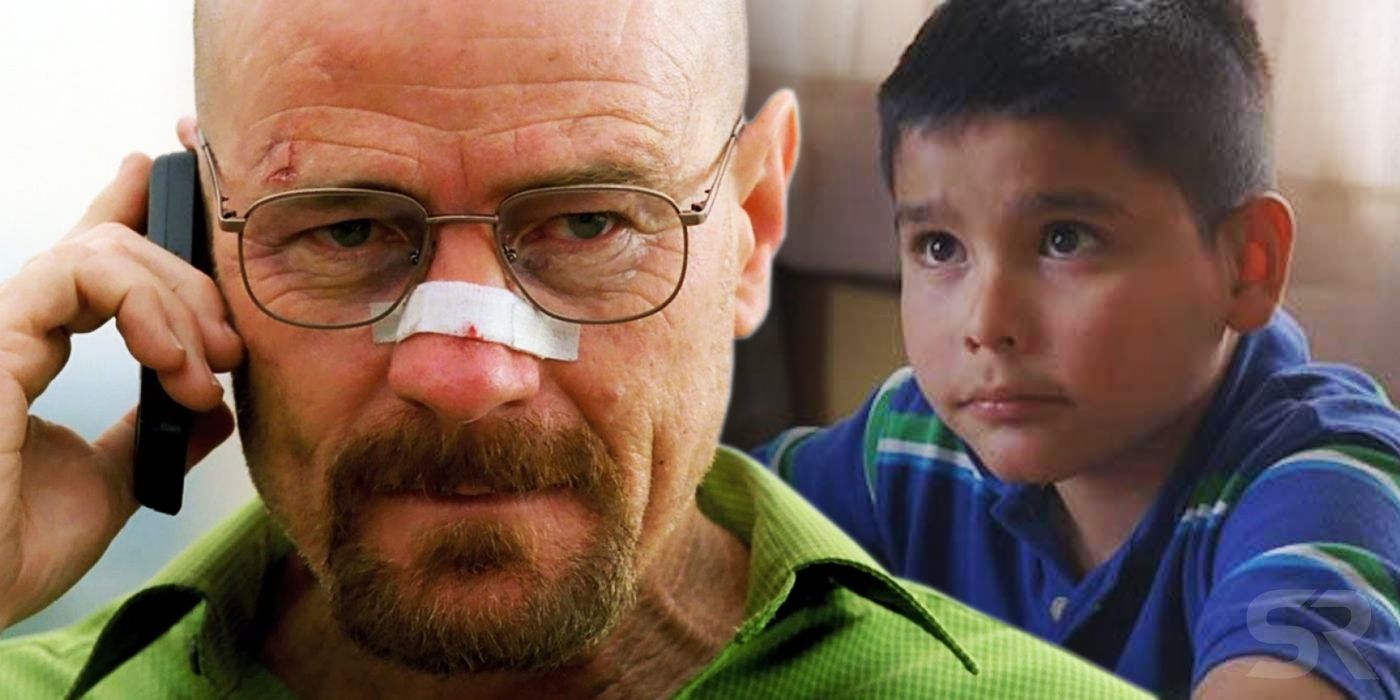Why Did Walter White Poison Brock Cantillo?
In the world of Breaking Bad, Walter White's transformation from a mild-mannered chemistry teacher to the ruthless drug kingpin Heisenberg is nothing short of jaw-dropping. But one moment in the series stands out as particularly chilling: the poisoning of Brock Cantillo. It's a move that left fans reeling, questioning Walter's morality and the lengths he'd go to maintain control. Let’s break this down in a way that makes sense, because trust me, this story is as layered as it gets.
The Setup: Why Walter Did It
Now, you might be wondering, why would Walter do something so despicable? At the time, Walter was at odds with Gus Fring, his dangerous and calculating business partner. Gus was someone Walter desperately needed to eliminate, but he couldn’t do it alone. Enter Jesse Pinkman, Walter’s volatile yet loyal partner. The problem? Jesse was estranged from Walter, bitter over past events and unwilling to cooperate. Walter knew he had to find a way to bring Jesse back into the fold—and what better way than to enrage him?
Walter’s plan was simple yet diabolical: make Jesse believe that Gus had poisoned Brock Cantillo, Jesse’s girlfriend Andrea’s young son, with ricin. By doing so, Walter hoped to spark Jesse’s fury and drive him to confront Gus, setting the stage for Walter’s ultimate plan to take down his rival. But here’s the twist—Walter didn’t use ricin. Instead, he opted for lily of the valley, a plant that could make Brock sick without killing him. This choice shows just how calculated Walter was, ensuring Brock would survive while still creating the illusion of danger.
Read also:Michelle Charlesworth The Trailblazing Journalist Who Climbed The Ranks
The Execution: How It Went Down
Walter didn’t act alone in this scheme. He enlisted the help of Saul Goodman, the morally flexible lawyer who often found himself entangled in Walter’s schemes. Saul, using his network of unsavory contacts, arranged for the lily of the valley berries to reach Brock. The execution was flawless, leaving no trace of Walter’s involvement. When Brock was rushed to the hospital, the doctors initially suspected ricin, reinforcing Jesse’s belief that Gus was behind the poisoning. But eventually, the truth came out: it was lily of the valley.
Here’s where things get even more twisted. Walter knew that once the truth about the lily of the valley surfaced, Jesse would piece things together. He’d realize that Gus wasn’t the mastermind behind the poisoning—it was Walter himself. This revelation would push Jesse to confront Walter, setting off a chain reaction that ultimately led to Gus’s demise. Walter’s plan worked, but at what cost?
The Fallout: How It Affected Jesse and the Series
When Jesse finally uncovered the truth about Brock’s poisoning, it shattered him. Here was the man he once trusted, the man who claimed to care about him, capable of such a heinous act. The poisoning of Brock wasn’t just about taking down Gus—it was about manipulating Jesse, using an innocent child as a pawn in Walter’s twisted game. This moment marked a turning point in the series, highlighting the moral decay of Walter White and the deepening rift between him and Jesse.
For fans, this revelation was nothing short of devastating. Walter’s actions blurred the lines between good and evil, forcing viewers to grapple with the complexities of his character. Was he a victim of circumstance, driven to desperation by his cancer diagnosis and financial struggles? Or was he a monster, willing to do anything to maintain his power and control? The poisoning of Brock forced us to confront these questions, making Breaking Bad one of the most thought-provoking series in television history.
Revisiting the Details: What Really Happened?
Let’s revisit the specifics of Brock’s poisoning. After Brock was hospitalized, the doctors determined that he had ingested lily of the valley berries, not ricin as Jesse initially suspected. This discovery threw Jesse into a tailspin, leading him to question everything he thought he knew. How could Gus, a man known for his meticulous planning, make such a blatant mistake? And why would he use a plant that could easily be traced back to him?
The answer, of course, was Walter. In a later confrontation, Walter admitted to poisoning Brock, claiming that it was all part of his plan to manipulate Jesse and take down Gus. But even as Walter confessed, his words rang hollow. How could Jesse trust anything Walter said? After all, this was a man capable of poisoning a child to further his own agenda. The moral ambiguity of Walter’s actions left viewers questioning the very nature of evil and the lengths people will go to achieve their goals.
Read also:Remembering Simon Cowell A Life In Entertainment And Conservation
A Series About Morality and Evil
Breaking Bad is ultimately a show about morality and the choices we make. Walter White’s journey from a desperate man trying to provide for his family to a ruthless drug lord is a testament to the dark side of human nature. The poisoning of Brock Cantillo is just one example of how far Walter was willing to go to maintain his power. It’s a moment that will forever be etched in the minds of fans, a reminder of the moral complexities that make Breaking Bad such a captivating series.
So, the next time you find yourself pondering the question of who poisoned Brock Cantillo, remember this: it wasn’t Gus. It was Walter, the man who claimed to care about Jesse but was willing to sacrifice an innocent child to get what he wanted. It’s a chilling reminder of the lengths people will go to when ambition overrides morality.


